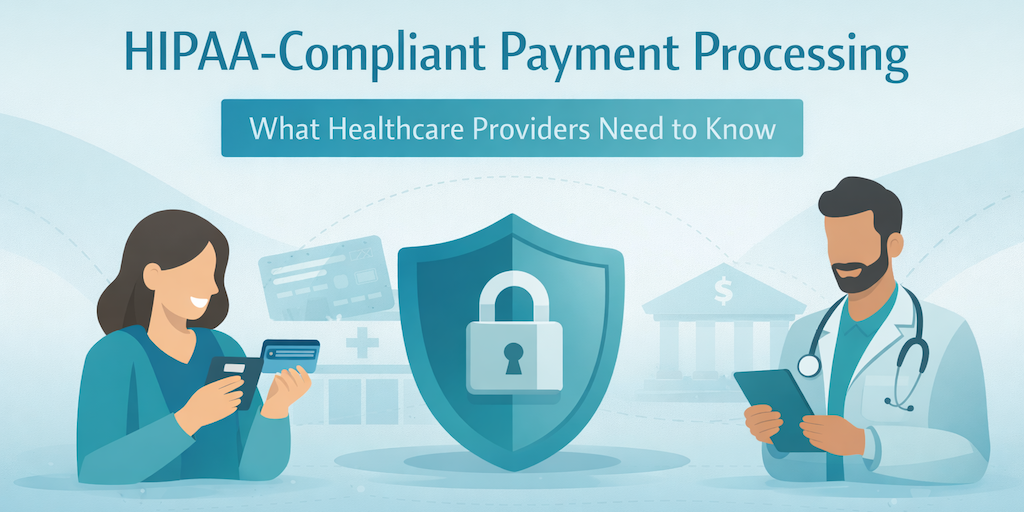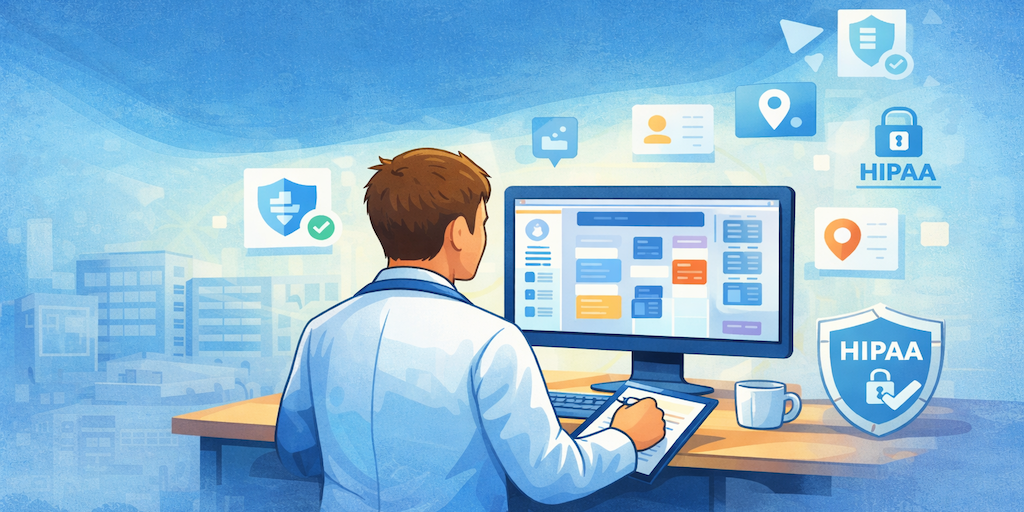Is Lovable HIPAA Compliant?
If you’re reading this, you’re probably deep enough in healthcare tech to know that “HIPAA compliant” isn’t some nice-to-have — it’s a hard, non-negotiable wall between you and a legal dumpster fire.
And yet, platforms like Lovable.dev keep popping up when teams start googling “how to build a healthcare app faster.” It’s not hard to see the appeal. Lovable promises to spin up full-stack web apps from natural language prompts, powered by AI magic. For overworked digital health teams, it sounds like finding an unlocked Tesla with the keys in it.
We get the appeal — we use Lovable ourselves for rapid prototyping when we need to move fast.
Naturally, the next thought is: Wait… can we actually use this for HIPAA-regulated apps?
(Spoiler: not without serious gymnastics — and a lot of trust falls.)
Key Takeaways
- Lovable.dev is a powerful tool for healthcare app prototyping but lacks built-in HIPAA compliance, making it risky for handling real patient data without major custom work.
- While it’s technically possible to harden a Lovable-generated app for HIPAA, the time, cost, and liability involved make it a poor choice for production-grade healthcare software.
- Specode provides a faster, safer alternative—a HIPAA-ready healthcare AI builder plus reusable components that turn plain-English prompts into live intake, scheduling, telehealth, and billing flows, with full code ownership—so you launch in weeks without compliance retrofits.
Why People Ask: Is Lovable HIPAA Compliant?

Here’s why this question is coming up more and more:
- AI-Generated Apps Are Seductive: Platforms like Lovable let product teams ship prototypes at lightning speed—without waiting three months for a full-stack dev to free up. For early-stage digital health startups, it feels like a cheat code.
- Healthcare’s Innovation Crunch: With hospitals, clinics, and healthtech startups under relentless pressure to deliver better patient engagement and workflows, faster MVP cycles are a survival tactic. Nobody wants to spend a year building something that might be DOA.
- Low-Code/No-Code Is Getting Serious: The line between “MVP prototype” and “launch-ready product” is blurrier than ever. Builders are asking if platforms originally meant for quick demos can be hardened into real, HIPAA-grade software. (Short answer: Lovable is still better suited for the former.)
But here’s the cold splash of reality: HIPAA isn’t impressed by how fast you can ship. It only cares whether every entity touching PHI is locked down with the right controls, contracts, and safeguards.
And that’s where Lovable starts to wobble.
Lovable doesn’t publicly claim HIPAA compliance. It doesn’t offer a standard Business Associate Agreement (BAA). And unless you’re ready to DIY your way through Supabase configurations, Clerk add-ons, Enterprise negotiations, and custom security audits, you’re signing up for a very expensive science experiment.
That’s why more serious healthcare builders are realizing:
- Use Lovable to prototype ideas without PHI.
- Use Specode to actually build HIPAA-ready apps—without gambling your legal budget.
In the next section, we’ll crack open Lovable’s architecture and show exactly where the compliance cracks start to form.
Inside Lovable: AI Code, Clerk, Supabase—And Compliance Gaps

On the surface, Lovable.dev looks like the no-code platform healthcare startups have been dreaming about:
✨ AI-generated apps from plain-English prompts.
✨ Secure sign-ins via Clerk.
✨ Database magic powered by Supabase.
✨ SOC 2 audit badge flashing like a gold star.
Sounds HIPAA-ready, right?
(Yeah… not quite.)
Let’s pop the hood.
AI-Powered Code Generation
Lovable’s core model takes whatever you type and instantly spins out frontend, backend, and database code. It’s like having a caffeinated junior engineer in your browser. But here’s the catch: unless you’re on their Enterprise plan (and negotiate custom terms), your prompts—and possibly your generated app code—can be used to train their AI.
If any real PHI slips into your prompts, that’s a compliance grenade waiting to go off.
Clerk for Authentication
Lovable leans on Clerk to handle login, MFA, and user management. Clerk is HIPAA compliant, but integrating Clerk through Lovable doesn’t magically shield you from liability. Unless the entire app stack—including Lovable’s platform layer—is HIPAA-compliant, using a compliant auth provider alone doesn’t save you.
Supabase for Database
Supabase can be HIPAA-compliant if you sign a pricey BAA ($599/month+ plans), bolt on extra security features (network restrictions, point-in-time recovery, etc.), and configure it manually. Lovable just helps you “connect” to Supabase—it doesn’t ensure your project is set up for HIPAA.
Security Scan (Nice, but…)
Lovable 2.0 introduced a Security Scan tool that checks for basic vulnerabilities (especially when you integrate Supabase).
It’s a step in the right direction—but calling it “early stage” would be generous. It’s more of a metal detector than a full TSA checkpoint. Don’t expect it to catch subtle HIPAA violations.
In short: Lovable has decent building materials—but no architect, no blueprint, and no compliance foreman supervising your project.
You’re responsible for stitching Clerk, Supabase, and Lovable together into something HIPAA-safe… and the platform’s default behavior doesn’t make that easy.
In the next section, we’ll hit the real non-negotiables: BAAs, AI training risks, and the hidden traps that could derail your HIPAA journey before you even hit “Publish.”
HIPAA Reality Check: No BAA, No Guarantees, Big Risks
If you’re hoping Lovable has a secret HIPAA compliance badge hiding somewhere in its fine print, you’re about to be disappointed.

Despite all its AI-powered flash, Lovable does not claim HIPAA compliance anywhere—not on its website, not in its Privacy Policy, not in its Terms of Service . And that missing BAA? Also MIA unless you negotiate something custom under an Enterprise contract (and even then, good luck finding public proof).
Let’s break down why this is a non-starter for serious healthcare builders:
No Standard BAA = No Safety Net
- HIPAA 101: If your vendor touches PHI, they must sign a Business Associate Agreement (BAA). No BAA, no go.
- Lovable’s Status: No standard BAA offered. Not even hidden behind a paywall. The only hint is that maybe you could negotiate one as a big-ticket Enterprise customer .
- Translation: If you’re using Lovable’s default setup and touching anything resembling PHI, you’re flying without legal cover—and one breach away from a very expensive news headline.
Your Data Might Train Their AI (Unless You Pay Up)
- Default Behavior: If you’re not on Lovable’s Enterprise plan, your app prompts and generated code can be used to train their AI models .
- Problem: If those prompts even hint at patient data—real or synthetic—you’re bleeding PHI into an uncontrolled environment. HIPAA does not care if it was “anonymized-ish.”
- Enterprise Plan Opt-Out: Only Enterprise customers can explicitly block Lovable from using their project data for AI training . Everyone else? Assume your data could become public model fodder.
Shared Responsibility = Shared Blame (Guess Who Loses)
Sure, Clerk and Supabase—Lovable’s default auth and database partners—can be made HIPAA-compliant with enough configuration, contracts, and credit card burns.
But Lovable itself? It’s operating outside the protected circle. HIPAA compliance demands end-to-end security:
- How the prompts are processed
- How the app code is generated
- How user sessions are isolated
- How audit trails are maintained
None of that is guaranteed or clearly documented for Lovable’s platform layer .
In short: Even if you wrap Clerk and Supabase in compliance armor, Lovable is still the exposed soft underbelly.
Next up, we’ll tackle whether you can force Lovable into compliance—and why most sane healthcare builders decide it’s smarter to start somewhere else. (Spoiler: hello, Specode.)
Can You Hack Lovable Into HIPAA Compliance?

You could—but it’s like building a hospital out of IKEA parts: technically possible, highly inadvisable. If you really want to force Lovable into HIPAA shape, here’s what your to-do list looks like:
- ✅ Sign a custom Enterprise contract with Lovable (good luck, no public BAA offered) .
- ✅ Manually secure a HIPAA BAA from Supabase (at $599+/month) .
- ✅ Confirm Clerk’s HIPAA BAA separately .
- ✅ Disable Lovable’s AI training access (Enterprise opt-out only) .
- ✅ Lock down Supabase with network restrictions, SSL enforcement, Row-Level Security, and PITR backups .
- ✅ Build external audit trails, since Lovable’s logs aren’t HIPAA-grade .
- ✅ Rewrite or vet every AI-generated line of code touching PHI.
Even then, you’re assuming full liability — because Lovable doesn’t guarantee compliance for the platform itself .
Or you could just… not.
Specode gives you HIPAA-compliant building blocks (video visits, e-Rx, scheduling, patient portals, payments) out of the box — no DIY compliance Olympics required. Plus, you get to orchestrate these components using an AI chat.
Next, we’ll show you how to safely prototype healthcare apps without risking a HIPAA violation (if you’re still Lovable-curious).
How to Prototype Safely: Lovable Without Real PHI
Lovable shines for ideas. Not for handling real patient data.

If you still want to tinker with Lovable to explore healthcare app concepts without inviting a HIPAA audit, here’s how to play it safe:
- Use fake data only. Populate fields with dummy names, fake dates of birth, fictional diagnoses. Treat it like a Hollywood medical drama: believable, but not real.
- Generate synthetic PHI. Tools like Synthea or Faker.js can pump out realistic-looking, fully fake patient records.
- Strip all identifiers. No real patient names, emails, MRNs, or anything remotely linkable to a human.
- Lock projects down. Always build in Lovable’s “private project” mode (never public!) to avoid accidental data exposure.
- Assume prompts are recorded. Whatever you type into Lovable, assume it gets logged unless you’re on a customized Enterprise plan with explicit opt-outs .
Bottom line: Lovable is a prototyping playground. Real PHI needs a real compliance stack — like Specode, built HIPAA-ready from the ground up.
Pro Tip:
Smart healthtech founders prototype fast with Lovable (fake data only) — then rebuild production apps on Specode to ship HIPAA-compliant, investor-ready products without starting over.
Specode vs. Lovable: The HIPAA-Ready Shortcut
If you’re building a real healthcare product—one that touches PHI, needs HIPAA compliance out of the gate, and must scale without legal landmines—Lovable makes you work for it.

Specode just gives it to you. Here’s why:
HIPAA-Ready from Day One
Specode’s modular components—video visits, patient portals, e-prescriptions, EMR, scheduling, secure payments—are all engineered with HIPAA compliance baked in. Not an afterthought, not a maybe. A guarantee.
No Frankenstein Stack
You’re not duct-taping Clerk + Supabase + vague platform settings together and praying it holds up. With Specode, your authentication, data storage, scheduling, communications, and billing modules are built to work together securely from the start.
Own Your Stack
Need AI? Need ePharma flows? Need custom care journeys? No problem. Specode’s library includes AI-assisted workflows to fuel all kinds of even the most sophisticated healthcare apps:
Here are the use cases listed on Specode’s website:
- patient medication management
- provider marketplace platform
- remote patient monitoring
- mental health group therapy platform
- lab results management platform
- healthcare provider team collaboration tool
- telehealth intake and referral system
- ai‐assisted telehealth
- mental health & wellness coaching
- home health & care coordination
You don’t have to invent compliant workflows. You extend them.
Zero Data Leakage Drama
Specode doesn’t train its AI models on your app data. Period. No “opt-outs” buried in Enterprise fine print. No games.
AI Builder: Chat-to-Live on HIPAA Rails
Describe the workflow you want—onboarding → intake → scheduling → telehealth → billing—and watch it materialize with an instant preview. You start on a healthcare foundation (roles, consent, audit), so you’re shaping care flows, not duct tape.
- Integration switchboard: EHR/EMR, labs, pharmacy/eRx, insurance, payments, and custom APIs—plug in what matters.
- Safety rails for speed: Change Log restore and role-scoped testing keep iteration safe while you move fast.
- Your brand, your code: fully brandable UI and full code ownership—no lock-in.
No AI magic—just sequence and focus: modify what exists, add only what’s net-new.
Faster Launch, Lower Risk
With Specode, you’re building healthcare apps on a real compliance foundation—not a “maybe-it’s-safe” experiment. That means less legal review, faster certifications, and an easier path to market (and to investors who actually check your security posture).
Bottom line: If you’re serious about shipping a HIPAA-grade healthcare app—without playing regulatory whack-a-mole—Specode isn’t just faster. It’s inevitable.
When Lovable Works, When Specode Wins
Lovable is great… if you’re building a demo for a hackathon or mocking up a healthcare idea without touching real PHI.

But if you’re building a real, compliant, scalable healthcare product, you’ll hit a wall—fast.
Here’s the no-fluff breakdown:
Ready to skip the compliance headaches and start building real healthcare apps?
Start free — build by chat, see a HIPAA-ready preview in minutes, and keep the code.
Frequently asked questions
As of now, there are no public announcements from Lovable about achieving full HIPAA compliance or offering standard BAAs to all users.
Lovable doesn’t offer native FHIR or HL7 support. You could manually integrate APIs for EHR systems, but doing so securely and compliantly would require substantial custom development.
Yes, if you strictly use fake or synthetic data and build in private project mode. Just be aware that moving a hackathon app into production will likely require a full rebuild.
Unless you have an Enterprise agreement with specific data protections, that PHI could be exposed to AI training pipelines, creating potential HIPAA violations.
Specode’s modules are designed to securely interface with e-prescription services, lab systems, and scheduling platforms without compromising HIPAA compliance, using vetted APIs and secure data handling protocols.









